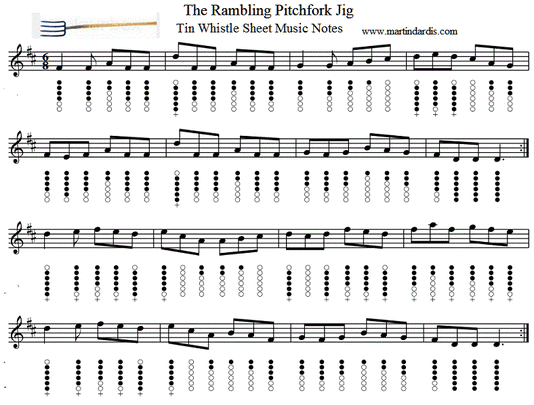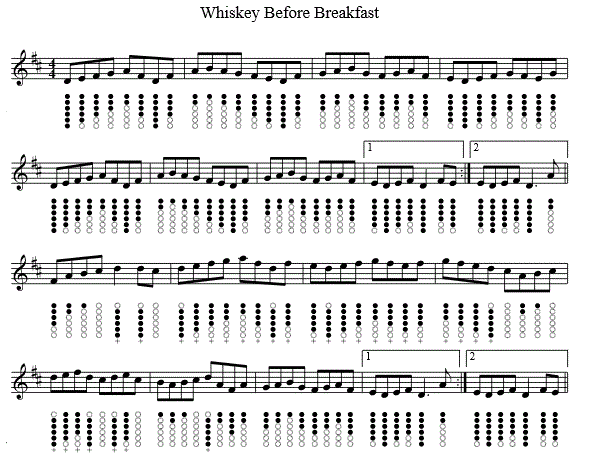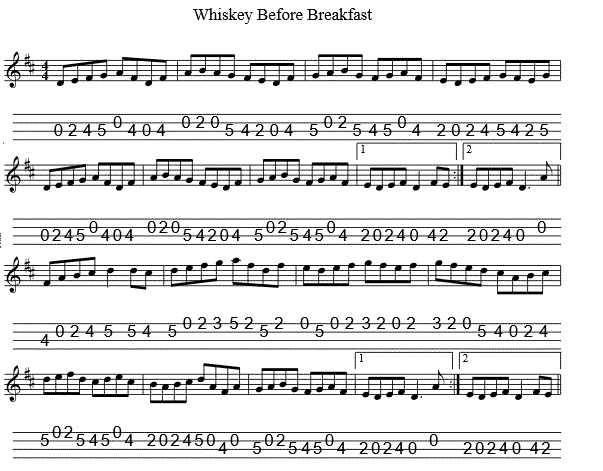The Rambling Pitchfork Tin Whistle Sheet Music
This is a jig in D Major. Recorded by The Wolfe Tones among others. The second tune is Whiskey before breakfast which is a reel. The mp3 of the tune is included along with the mandolin tab.
Below is a list of the most popular Traditional Irish Tunes for tin whistle which comes free when you
buy the tin whistle ebook .
buy the tin whistle ebook .
Below is a list of over 170 traditional tunes with mandolin / guitar chords in an ebook.
It cost €6.50
It cost €6.50



